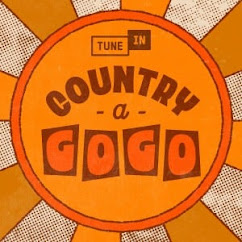By Gene Sculatti
As the Everly Brothers said, it’s “So Sad to Watch Good Love Go Bad.” Almost as sad, if you’re a fan of bad TV, is watching one of the species’ strongest contemporary contenders just roll over and play good. Unfortunately, that seems to be what’s happened in the second season of Blue Bloods, CBS’s Tom Selleck starrer about a tri-generational family of NYC cops. It’s a shame too, since the show started out as a shining example of one of the richest but least-traversed goofspaces in all of popular culture: Sentimental Fascism.
The SF genre’s best exponents were, of course, oak-solid, cedar-hewn Chuck Norris’ Walker, Texas Ranger (1993-2001) and the criminally undervalued The District, with Craig T. Nelson as Washington, D.C’s chief cop (2000-2004). Norris’ Walker walked a fine line between heart-tug subplots (to the distraught Latina slapping masa in a tortilla factory: “I’ll see that Jose doesn’t join the gang, Mrs. Garcia”) and Miranda-busting fuzz-play (warrantless door-kicks a specialty). Nelson’s Chief Jack Mannion grew misty around his dog or his single-mom assistant, but played hardball with softie judges, drug lords and his arch-nemesis, a Russky agent named Putin.
What made Blue Bloods such a comer was just what makes the best classic bad TV great: the commitment to craft—the creators’ on-time delivery of piping hot clichés of story and dialogue designed to satisfy loopy, often dated assumptions about the desires of the target demo. CBS’ 2010 decision to launch a series about a tough, conservative commissioner (“Frank Reagan”!), his dad (an ex-commish who rues the day when bulls had to stop using concealed “sappers” [blackjacks] to crack heads) , two cop sons and assistant-D.A. daughter surely reflects the network’s interpretation of the midterm elections as a huge cultural right turn. Clearly, the reasoning must’ve gone, the lumpenprole now crave a liberal-bashing law-and-order show, just as they did when Walker debuted—during the cultural dustup that presaged the Republicans’ 1995 Congressional putsch.
Selleck himself is a laff riot. His toolbox, once overflowing with enough affability and beefcake-lite appeal to power eight seasons of Magnum P.I., now holds just one item: gravitas. The duties of gig, moral grounds-keeping and paterfamilias weigh so heavily on his I-beam shoulders that deep sighs, solemn head-hangs and marathon silences are all he can manage. Those and snippy retorts to his mayor boss—in Season 1 a craven pol (aren’t they all?), in 2 a smug black manager who tells Frank that the city’s “old, white, Irish-Catholic days are over” and gets smacked with Frank’s reply that he, the noble mick, missed out on the benefits of affirmative action and a “community organizer” background. Hoo-boy! Plus, Selleck comes off about as ‘New York’ as you’d expect a 1962 graduate of Grant High, Sherman Oaks, California, to come off.
The kicks came fast when Blue Bloods debuted. How did we know the Reagans were blue-collar anti-elites? At Frank’s pad, kibitzing or enjoying communal Sunday dinners (with offspring a party of 10: those Irish-Catholics!), they drank nothing but beer—out of the bottle. Anti-intellectualism roamed the show like a python, crushing the slightest hint of world knowledge or book-learnin.’ College-educated rookie-cop son Jamie was relentlessly tagged “Harvard” by his dese-dem-and-dose sergeant , “Anthony Renzulli” (those kooky dagos!) and by his own older brother, Danny (ex-NKOTBer Donnie Wahlberg, sporting a Howard Devoto liver-slice haircut), who often reminded Jamie “Remember, you’re not in Cambridge anymore.”
Prosecutor daughter Erin Regan, who at least understood suspects’ rights, was routinely pilloried by Danny and daddy Frank (“Why do we bother catching the criminals if you’re just gonna let them go?”) and her grandfather. Frank’s pappy, ex-commissioner Henry Reagan, once berated Erin for pushing her pre-teen daughter onto an “arts” track in school, potentially ruining the Reagans’ sprint to a four-generation dynasty.
I tell you, it was rich. But now Blue Bloods has had its edges trimmed and usually resembles a run-of-the-mill procedural, its pro-active mildness besting the bad but unfunny Castle only by degrees. There may yet be hope, though. In a recent episode Sergeant Renzulli , at the apartment of a crime victim, asks her what’s playing on her stereo. “Shostakovich,” she answers. “Oh,” says Renzulli. “Sounds like the guy who makes my vodka!”
TuneIn
Monday, December 26, 2011
Bad TV Beat: 'Blue Bloods'-- Once Riotous Cop Show Misses a Beat
Posted by gene sculatti at 7:16 PM
Subscribe to:
Post Comments (Atom)














1 Comment:
Love this post! More Sculatti on bad TV! I laughed out loud at "deep sighs, solemn head-hangs and marathon silences are all he can manage". Tell "anonymous" to get a sense of humor, jeez.
Post a Comment